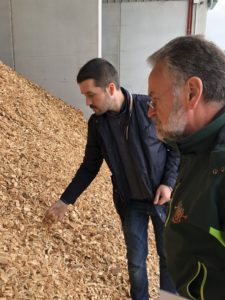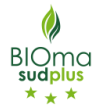 During this last year of BIOMASUD PLUS project execution, the consortium dedicated most of its effort to improve the BIOmasud® Quality and Sustainability certification system. The works carried on were included on the Working Package 6 that included three main tasks:
During this last year of BIOMASUD PLUS project execution, the consortium dedicated most of its effort to improve the BIOmasud® Quality and Sustainability certification system. The works carried on were included on the Working Package 6 that included three main tasks:
- Reviewing the certification’s handbook with the improvements
- Establishing the structure of the system in the countries
- Carry on pilot audits on the relevant countries to test the handbook in the field
A first version of the handbook (v14) was performed on the first months of 2018 with the improvements developed during the project. Major changes are the new biofuels included (olive tree & vineyard prunings, walnuts and pistachio shells), the traceability system with an on-line platform and the sustainability requirements which were reviewed and putting in line with the new REDII directive which was approved some days ago by the European parliament. One novelty in the system is the separation into two kind of labels, one label for quality domestic solid biofuels for small installations (stoves and small boilers) and another label for quality domestic solid biofuels but for bigger installations (hospital boilers, district heatings, etc.).
This handbook was delivered to all partners who are implementing BIOmasud® in their respective countries (AIEL à Italy, AVEBIOMà Spain, CBE à Portugal, CERTH à Greece, GIS Slovenia, TUBITAK Turkey and ZEZ Croatia).
Also, in the first months of 2018, all the partners implementing the system established the structure of the system. The BIOmasud® certification system is a third party independent bodies system that audit the producers or traders, test the product and issue the certificate so the procedure becomes absolutely independent and trustable. Professional and reputed entities accredited for these specific works joined the system (AENOR, Bureau Veritas, TUV, ENAMA and BEA)
With the updated version of the handbook (v14), pilot audits have been conducted already where BIOMASUD PLUS partners are checking the improvements in the field to the quality and sustainability certification scheme. All the feedback collected in these audits has been used to update again the handbook (that will be named v15) that is being finalised in these last weeks of the project. This version of the handbook will be published on the Scheme’s WEB and will be in force at the beginning of the next year.
